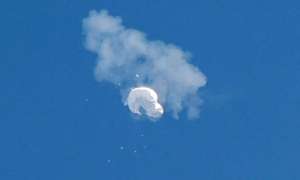
Russian President Vladimir Putin is damaged. He may have been spared this weekend’s mutiny by Yevgeny Prigozhin and his Wagner Group of mercenaries. However, in his response, Putin not only made himself more vulnerable but also planted an idea of his impotence in the minds of Russians and the world.
Of course, Putin himself had to show up and the country had something to say as Prigozhin’s mercenaries captured the southern Russian city of Rostov and began moving north toward Moscow. But what exactly? Putin bluntly said that the rebels were “betraying” the country in the fight against “neo-Nazis” and the West. There was so much hope. Mistakes ensued.
The first was comparing Prigozhin’s coup attempt to the mutiny of Russian troops in early 1917. This created three parallels in the Russian mind that would be difficult to eradicate. First, there is a weak and unpopular czar—Nicholas II, who was later executed along with his family—much like Putin today. Second, there is a war going on in which Russia is losing—then World War I; Russia’s invasion of Ukraine. Third, there will soon be a revolution and a civil war, so start thinking about which side you should be on.
The second mistake was even more serious. Putin promised that his response would be “tough.” The rebels “will inevitably be punished”, he said. Traitors “will be held accountable.”
With manly talk, he was displaying his old powerful personality, forgetting to stop and think whether he still had the power to redeem his arrogance. They only found out later that they didn’t, as they instead decided to broker a deal with Belarusian President Alexander Lukashenko. This allows Prigozhin and possibly some of his mercenaries to move to Belarus, while Russia formally drops all charges against him. Harsh punishment looks different.
The cognitive dissonance of Lukashenko making the phone call made Putin’s ouster even more humiliating. In recent years, it has been the dictator in Moscow who has had to be shielded from the revolutionary energy of his subjects in Minsk. In their meetings, Putin was always careful to display a silverback body language that made the towering Lukashenko look like a Kremlin minister. Now the roles are reversed.
How long can either of these strong men – or rather the weak ones – remain in power? Many people are asking now.
The reality — as everyone knows not only in Moscow and St. Petersburg, but also in Beijing, Kyiv, Washington, and everywhere else — is that while Saturday’s shooting may have been averted, nothing is resolved yet. Prigozhin, who runs a private army that kills and maims people for profit from Africa to Syria and Ukraine, is not the type to retire and play bingo. He will do something before long. After all, he is already a fan of memes on social media.






